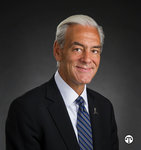

(NAPSI)—My greatest hope from last week’s historic Business Roundtable proclamation cementing the changing concerns of some of the world’s top business leaders is that this statement becomes reality. This idea that corporations deliver more than profits deserves our attention, respect, and for those who can, help. Unsurprisingly and perhaps understandably, there are cynics and doubters, but still, the statement of governance, the one with nearly 200 CEOs signatures promising a more compassionate, broader and intergenerational take on stakeholder value is an essential first step for our communities—current and future—that fall under this expanded definition.
“The American dream is alive, but fraying,” said Jamie Dimon, Chairman and CEO of JPMorgan Chase & Co and Chairman of the Business Roundtable in support of the shifting priorities he and his peers outlined for the pro-business lobby, which had not amended its shareholder value statement since 1997. The intervening two decades have seen a collective cry for a more purpose-driven society while, according to recent research published by the Harvard Business Review, companies with higher levels of purpose outperform the market by 5 percent to 7 percent per year. (These are business folks after all.)
As the CEO for the last 10 years of America’s largest healthcare charity, ALSAC—the fundraising and awareness organization for St. Jude Children’s Research Hospital—I know a lot about dreams crushed and dreams fulfilled. St. Jude has answered many a parent’s prayer for their child’s return to health from a catastrophic illness such as cancer, and has done so with blind equity at the heart of our mission. Since opening our doors in 1962, we’ve treated thousands of patients regardless of race, country of origin or creed, and at no cost to the families—many of whom would never be able to pay for the treatments, travel, housing and more that’s required of this journey that we cover thanks to generous donors. For many of our families, the American dream never existed, was never in reach. And when they leave us, they face that reality anew.
The business leaders who have put their names to paper, as our country’s founders once did, are theoretically accountable now to their words and an ROI that isn’t just measured by profit. I applaud them for the bravery of their action and hope this laudable statement becomes reality. The pursuit of purpose alongside bottom line revenue and traditionally defined shareholder return is the more difficult, yet rewarding path.
The journey ahead for them will be extraordinary; a test against the cynics and nonbelievers. But each can take solace knowing the status quo is not an immovable object when faced with the tenacity of genuine purpose. I hope they’ll channel our founder, Danny Thomas, who never wavered despite many in the medical community resolute in their beliefs he was wasting his time trying to save cancer-stricken children; that the challenge would ultimately break his heart.
The manifold survivorship success of St. Jude over five decades has proved false the naysayers. So I hope the Roundtable will look to us—and my colleagues across the nonprofit sector—for hard-learned lessons from operating models that stand on purpose and community benefit.
In Memphis, where our headquarters are, the legacy of Dr. Martin Luther King, Jr.—his achievements and tragic death—permeates our soul and guides what we strive to achieve. For those business leaders whose lodestar is now a fairer, more equitable, sustainable economic and environmental reality for consumers and—with the aperture widening on “shareholder”—for broader communities and future generations, I look forward to helping you answer the call from Dr. King that hangs over my desk: “Life’s most persistent and urgent question is, ‘what are you doing for others?’” Learn more at www.stjude.org.
Download high-resolution, print_quality graphic and MS Word document